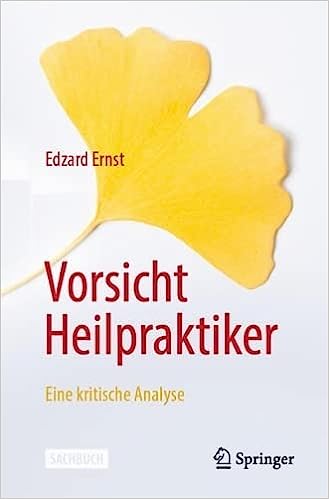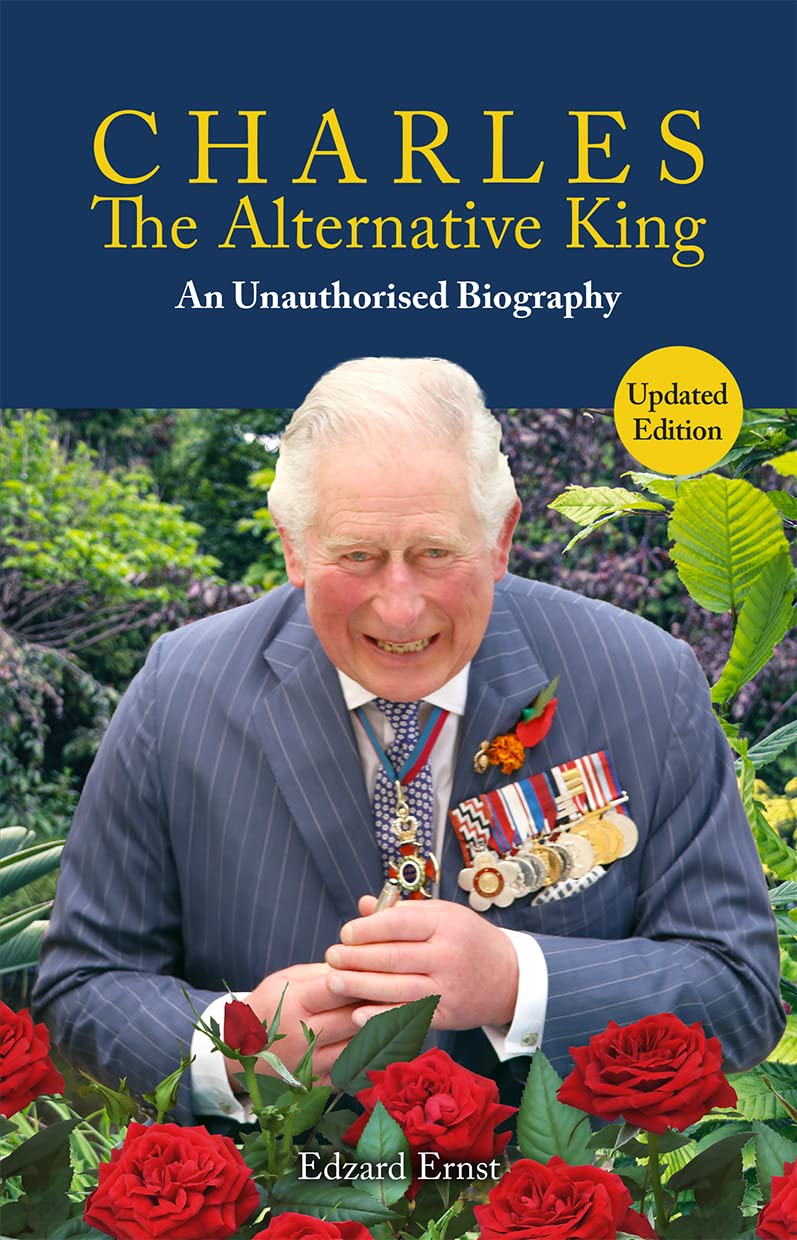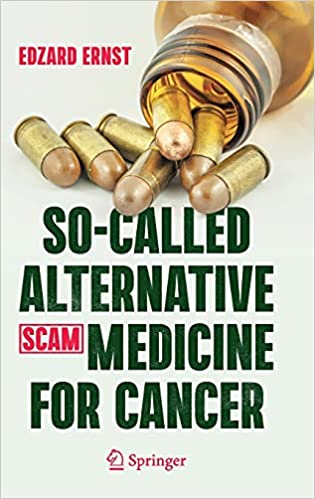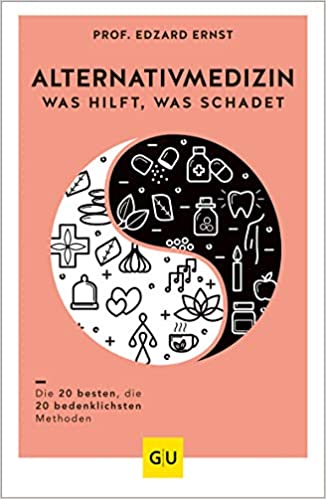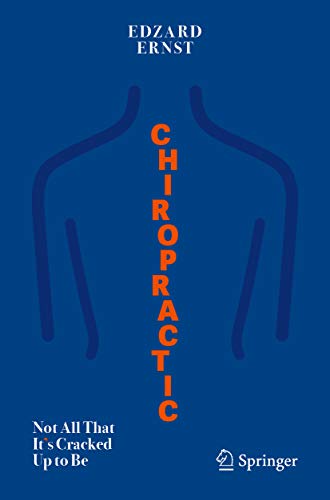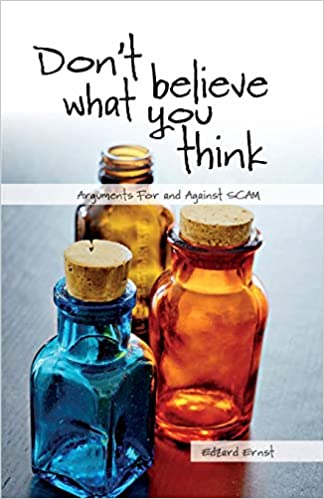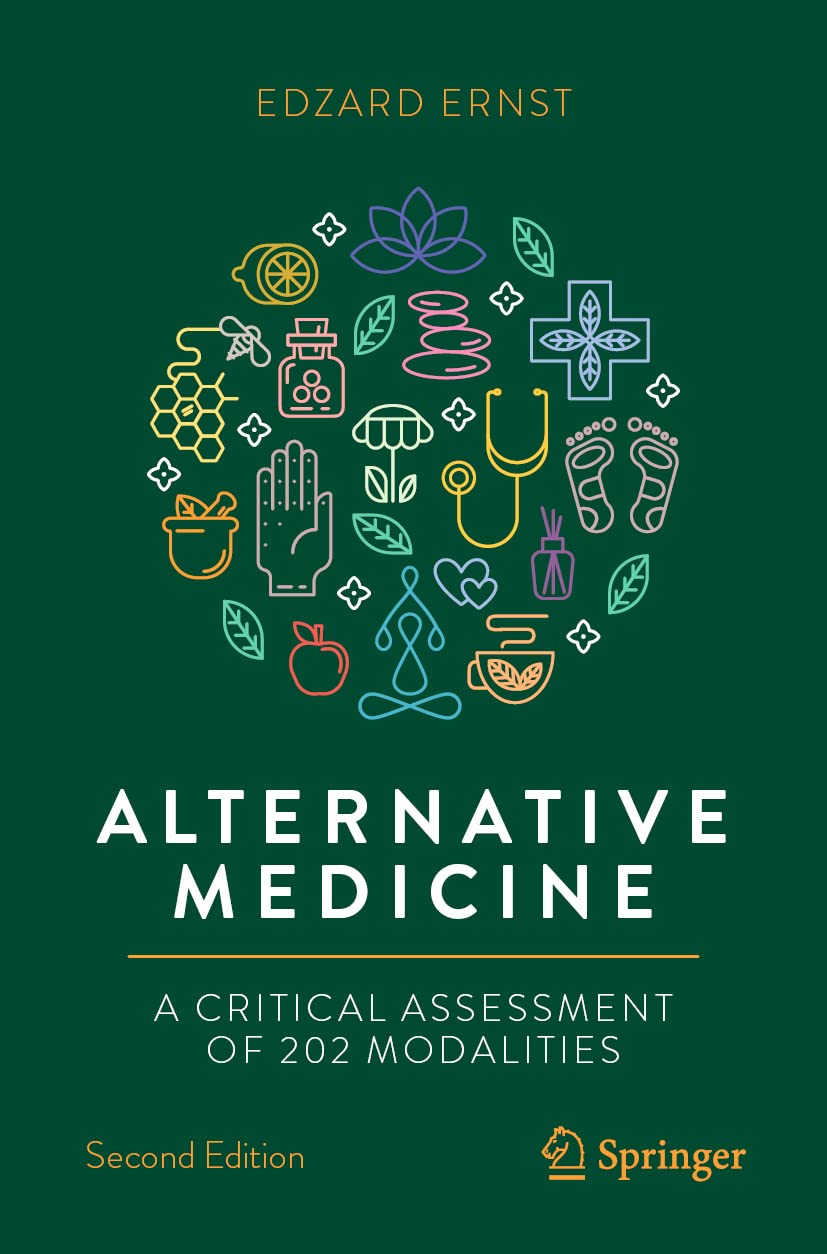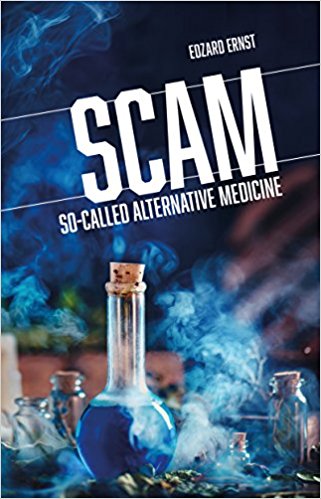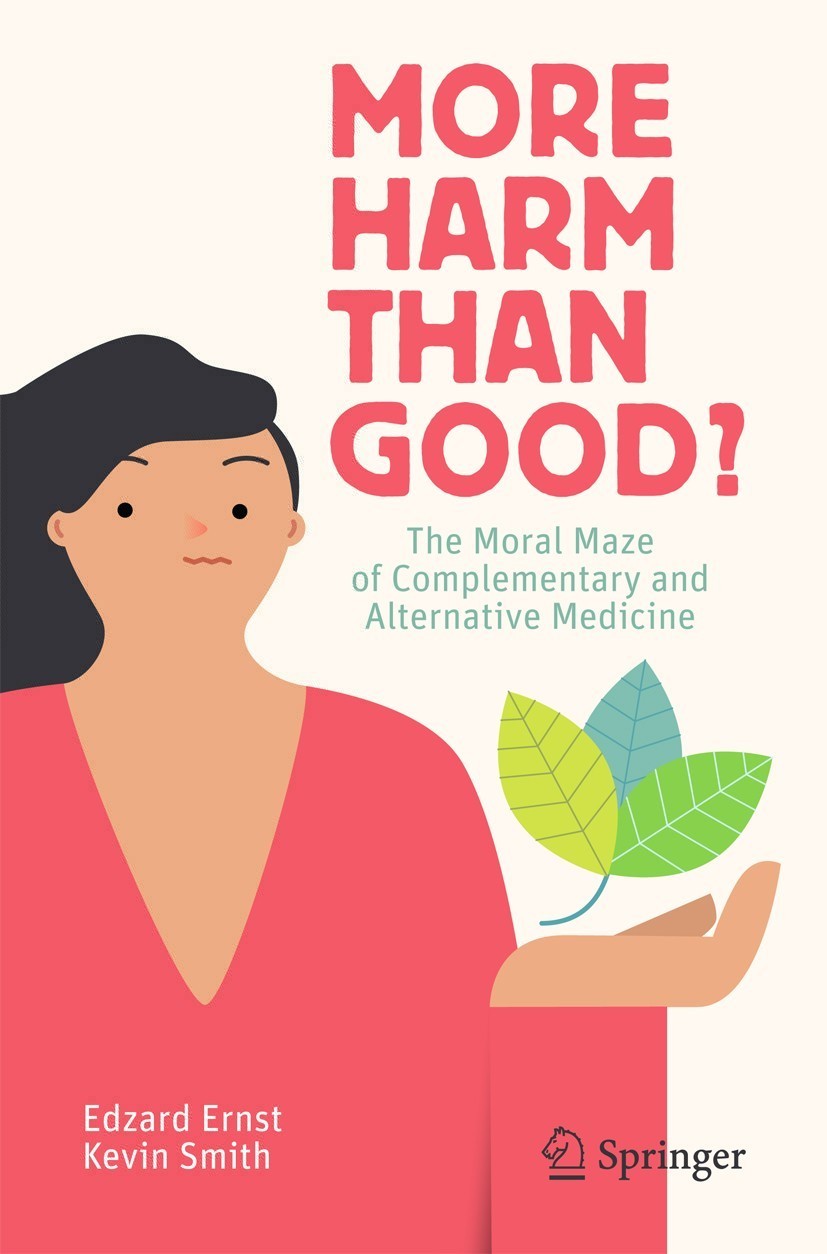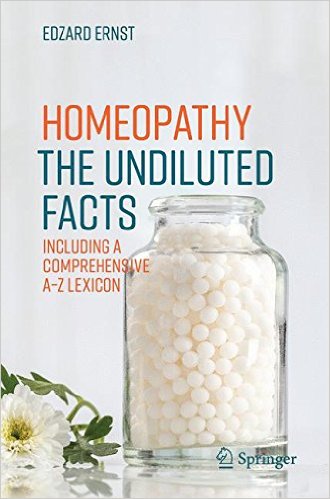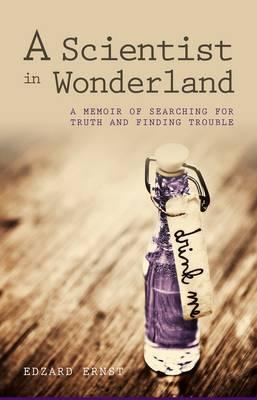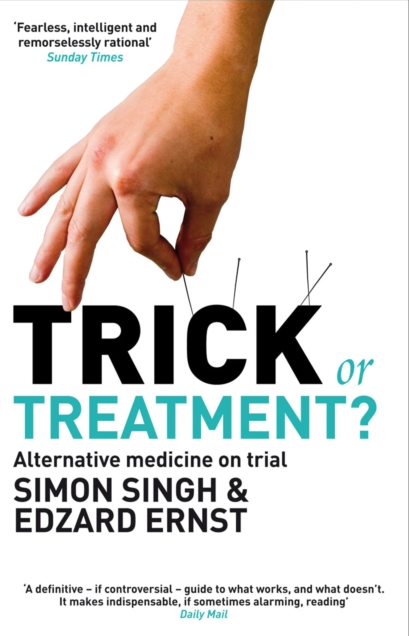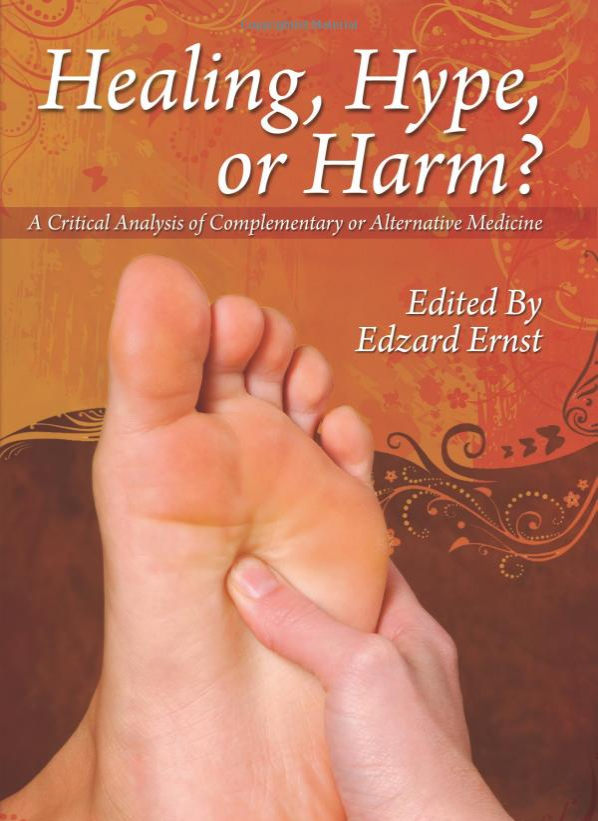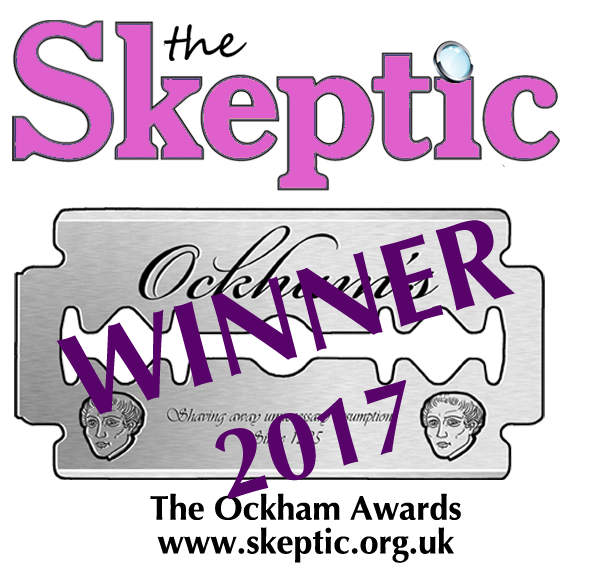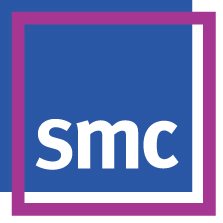Guest post by Richard Rawlins
Ever since its inception, Homeopathy has struggled to establish principled medical ethics amongst its practitioners. For sure, Samuel Hahnemann was good doctor who achieved much by denying his patients the bleeding, emetics, expectorants, laxatives and poly-pharmacy conventional at the turn of the nineteenth century. But he then lost his way in spiritism and vitalism, devised a system of care which could not, and did not, provide any benefit beyond placebo responses, and inveigled many colleagues to share his delusion. Many derided him.
As medicine in all developed countries became better regulated, so the associated ethics became better focussed. “First do no harm” is common to all systems, but in the UK, the four ‘A’s of avoiding adultery with a patient, alcohol whilst in a clinical situation, advertising, and association formed the next domain. ‘Association’ meant having a professional medical relationship with anyone not also a GMC registrant. Times, and standards have changed, but quackery, charlatanism and health care fraud has always been unethical. The problem for society has been the GMC’s reluctance to take any action against its registrants who lack integrity, promote quackery, or seek to defraud. The general response has been “we only act on complaints by a patient, health authority or fellow registrant – and complaints have to be specific.”
So it is that about 400 registrants of the GMC continue practising homeopathy with impunity. Sir Simon Stevens has now all but banned homeopathy from the NHS, but a medically qualified practitioner, in the private sector can do as they please, no matter how vulnerable and gullible the patient.
Doctors are of course required to obtain fully informed consent to treatment, and that should mean advising patients that homeopathic remedies are but placebos. Many patients so treated will declare they “feel better” and are content – but in practice, no explanation is offered to patients attending homeopaths. A classic charlatonnade (a charade promulgated by a charlatan).
But perhaps the vicissitudes of Covid-19 is exposing the hypocrisy of the GMC’s position, and might yet enable some redress for patients seeking redress for unethical medically qualified homeopathic attention.
The Guardian and Sunday Times of 22nd March 2020 reported that Dr Mark Ali allegedly made £1.7M profit in one week from selling kits to test for COVID -19.
“The GMC said no doctor should try to ‘profit from the fear and uncertainly caused by the pandemic…We would be concerned to learn that doctors are exploiting patient’s vulnerability or lack of medical knowledge, in order to profit from fear and uncertainty…’ “
The rationale for that fear is surely irrelevant – any health practice which takes advantage of the patient’s vulnerability or lack of medical knowledge is unethical. Simple.
“We also expect doctors… not to offer or recommend tests that are unproven, clinically unverified or otherwise unreliable.”
This is in the context of the serious issues of SARS-CoV-2 (the name of the corona virus which causes the illness COVID-19) – but it is helpful that the GMC’s ethical principles have been clearly stated.
May we take it the GMC will be equally as stringent with their registrants (doctors) who take advantage of the patient’s vulnerability or lack of medical knowledge, and recommend tests such as homeopathic provings “that are unproven, clinically unverified or otherwise unreliable.”?
And if not, why not?
All homeopathic remedy prescriptions are ‘tests’: “Take this, see how you go, I’ll adjust if needed…”. The German word pruefung used by Hahnemann (meaning ‘testing’ or ‘examination’) has been translated into English as ‘proving’. But the word for ‘to prove’ is beweisen, and that is not the word Hahnemann used. The use of ‘proving’ in English implies merit which is not deserved. All part of the delusion.
Clearly, any doctor who recommends homeopathic remedies, but does not explain the conventional view of the remedy, lacks integrity and is unethical – by definition. If the doctor is GMC registered (which a ‘doctor’ does not have to be – e.g., dentists are not) – they should be subject to sanction by the GMC. The GMC should do its duty to protect the public, and not wait for a crisis to stir them into action.
Sadly, if practitioners are not GMC registered, caveat emptor.
Lynne McTaggart and Bryan Hubbard, editors of What Doctors Don’t Tell You and Get Well magazines, are pleased to announce a series of four FREE weekly webinars, via Zoom, starting Thursday, April 2 designed to maximize your health and wellness in every way during these challenging times.
In these free hour-long sessions, Lynne and Bryan will interview a number of pioneering doctors and specialists, who will give you detailed advice about natural substances that kill viruses, the best supplements, foods and exercises to boost your immune system, and the best techniques to stay calm and centered during these challenging times.
Sign up to be sent the link for the live webinar where you can have the ability to ask your questions to these pioneers, get access to the recording of the webinars and receive a handout of helpful relevant tips to that webinar.
Thursday, April 2, 2020
9 am PDST/12pm EDST/5 pm BST/6 pm CSTThis webinar will feature the best substances and supplements proven to prevent the spread of viruses. Joining Lynne and Bryan are noted pioneer Dr. Damien Downing, president of the Society for Environmental Medicine, who was part of a team of orthomolecular doctors who devised a special supplement preventative against the coronavirus; Dr. Sarah Myhill, a British integrative doctor noted expert on vitamin C and other natural virus killers; and Dr. Robert Verkerk PhD, the founder and president of the Alliance for Natural Health and an expert on food and health.
Yesterday, it was announced that Prince Charles, a long-time advocate of so-called alternative medicine (SCAM), has been taken ill with the corona virus. Since then, I have been inundated with messages about this fact. Many thought that, because Charles and I have a bit of history (details here), I might now ‘have a cup of tea and a malicious smile on [my] face thinking about it’, as someone put it on Twitter. Others made sarcastic comments suggesting that he will be fine because of all the help of the homeopathic cult.
I cannot join these sentiments. On the contrary, I sincerely wish him well – not because he is royalty, but because I wish everyone well who has been infected with this virus.
And I honestly do not think that Charles will be popping homeopathic placebos to save his life. Whenever a member of his (usually pro-homeopathy) family had fallen seriously ill in the past, they very quickly sought the help of the very best evidence-based medicine could offer. Charles’ present illness will be no exception, I am sure. If his infection becomes serious, he will have the benefit of everything modern scientific healthcare has to offer.
When he recovers – and I do hope he does – he will have plenty of time to think. Chances are that he never before had been afflicted with a killer disease. This should make him see things from an entirely new perspective. He must realise that so-called alternative medicine (SCAM) is an option only as long as one is healthy. Once the battle for saving a life is on, real medicine must save the day.
I am a born optimist, and therefore I hope that Charles on his sick-bed might even think a little further. He might realise that a health crisis, like the current corona pandemic, regularly brings out the charlatans who are trying to flog their wares or services to the unsuspecting public. On my blog, I have discussed some of these irresponsible rogues:
- homeopaths,
- colloidal silver crooks,
- TCM practitioners,
- orthomolecular quacks,
- Unani-salesmen,
- chiropractors,
- essential oil salesmen,
- urine/dung quacks,
- supplement peddlers.
With a bit of luck, Charles might even reflect that his past endorsement of these quacks has been less than helpful; in the present crisis, it might even cost lives. Charles, I hope, will thus reconsider his attitude towards medicine, heaven knows, he might even become an outspoken advocate fro EBM!
So yes, I am an incurable optimist. Yet, I realise, of course, that Charles might not have any of these insights. That would be regrettable, but it does not deter me from wishing him a speedy recovery:
GET WELL SOON, CHARLES!
[If you do not like black humour or sarcasm, please do NOT read this post!!!]
Donald Trump just announced that, at Easter, he wants to see churches packed, his way of saying the lock-down is over because it is damaging the economy. Many others have put forward similar arguments and have pointed out that caring for the vulnerable, sick, old, etc. creates an economic burden that might eventually kill more people than it saves (see for instance ‘Economic crash could cost more lives than coronavirus, study warns‘).
Many people have also argued that homeopathy is unjustly vilified because it is truly a wholesome and safe medicine that should be used routinely. The notion here is that, alright, the evidence is not brilliant, but 200 years of experience and millions of fans cannot be ignored.
I have been wondering whether these two lines of thinking could not be profitably combined. Here is my suggestion based on the following two axioms.
- The economy is important for all our well-being.
- Homeopaths have a point in that the value of experience must not be ignored.
What follows is surprisingly simple: in view of the over-riding importance of the economy, let’s prioritise it over health. As it would look bad to deny those poor corona victims all forms of healthcare, let’s treat them homeopathically. This would make lots of people happy:
- those who think the economy must take precedent,
- those who fear the huge costs of saving corona patients (homeopathy is very cheap),
- those who argued for decades that we never gave homeopathy a fighting chance to show its worth.
There is a downside, of course. There would be a most lamentable mortality rate. But, to paraphrase Dominic Cummings, if a few oldies have to snuff it, so be it!
Once we get used to this innovative approach – I suggest we call it integrative medicine – we might even consider adopting it for other critical situations. When we realise, for instance, that the pension pots are empty, we could officially declare that homeopathy is the ideal medicine for anybody over 60.
What do you think?
I have often stated jokingly that ‘HOMEOPATHY IS INCURABLE’; well, I was wrong! There seems to be a treatment that works quite reliably.
It’s called humour.
The Brits have been the pioneers in this field. One of the best examples is this classic by Mitchell and Webb.
In my view, it marked a turning point in UK homeopathy. After it’s enormous success, even the NHS re-considered its previously positive stance on homeopathy.
Now, a brilliant French comedian, Jeremy Ferrari, is having a similar success with his homeopathy-show in France. And it too marks the turning point where homeopathy is starting to be phased out from reimbursement in France.
So, are comedians the ones that bring consumers to reason when it comes to absurdities such as homeopathy? Or are comedians gifted at picking up the Zeitgeist and thus merely the ones who hammer the last nail into the coffin of homeopathy?
I think it is probably a bit of both.
But, whatever it is, these guys are brilliant! They achieve more good with their work than others writing clever articles in the Lancet and other medical journals. One good laugh seems to be more efficacious that pages of critical analysis.
If my blog has in the past stimulated some of these comedians to do their ingenious work – and I happen to know it has – I am both delighted and proud.
So far, our ‘Corona-Virus Quackery Club’ (CVQC) boasts the following membership:
- homeopaths,
- colloidal silver crooks,
- TCM practitioners,
- orthomolecular quacks,
- Unani-salesmen,
- chiropractors,
- essential oil salesmen,
- and the urine/dung quacks.
It is time now, I think, to admit some supplement peddlers.
How come?
Many dietary supplement merchants seem to feel that the current pandemic is an excellent opportunity to flog their useless wares to the anxious public.
“COVID-19
In order to support increasing worldwide demand for the LYMA supplement, we would like to inform new and existing customers that we have sufficient stock in place to ensure uninterrupted supply.”
This was the text of an email I received recently. It linked to a website that informed me of the following:
We continue to work with our scientific network and global supply chain to bring you the latest scientific developments as they arise.
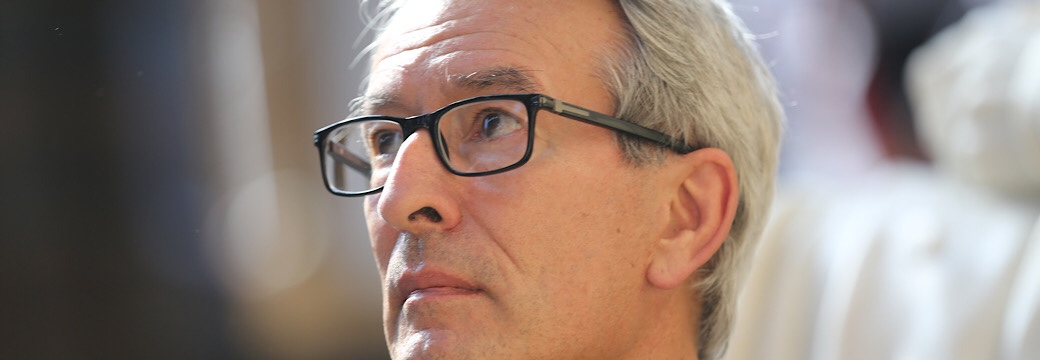
Dr. Paul Clayton, PhD – Director of Science, LYMA
“Covid-19 is causing an enormous amount of illness and disruption. This is due to its high transmission rates, long incubation period, and the substantial numbers of people – 15 to 20% of those infected – who become ill enough to require hospitalisation. This last aspect is concerning as no health care system in the world has sufficient resources to cope with such an influx of seriously ill patients.
At the time of writing there are no specific treatments available. The only advice given is to avoid crowds, wash the hands frequently, and not touch the face. Some authorities recommend face masks and gloves; and we are increasingly being recommended to shelter in place.
But there may be more we can do to protect ourselves. Dysnutrition is common, due to our over-consumption of ultra-processed foods with little nutritional value. Supplements have a role to play in improving general nutritional status and general immunity. But we can take that further.
LYMA. The ultimate supplement.
Chronic stress reduces immuno-competence and makes us more vulnerable to infection. Adaptogens such as KSM-66 Ashwagandha in LYMA have the ability to alleviate the damaging effects of stress and have been shown to improve immunity. So have the Wellmune 1-3, 1-6 beta glucans in LYMA, with many hundreds of studies showing that these natural compounds increase resistance to infection.
These are just two elements that may improve our chances in the difficult times ahead.”
Dr. Paul Clayton, PhD – Director of Science, LYMA
In case the name ‘LYMA’ rings a bell: yes, we have previously discussed the ‘the world’s first super supplement’ and the many claims made for it. We even had the pleasure of an interesting exchange with the above-pictured Dr Paul Clayton in the comments section of that post. Given the above, I am more than happy to welcome him, his LYMA team, and all other supplement peddlers who try to make a fast buck in the present crisis to the CVQC.
WELCOME GUYS!
Guest post by Björn Leifsson
I stumbled upon a web-article (in Icelandic) in which a local homeopath expresses her concerns over a public statement made by the national medical society suggesting that mention of homeopathic “drugs” should be removed from the legislation because homeopathy was an outdated approach and belief that is “neither based on scientific knowledge nor research”. The indignant homeopath referred to a YouTube video (really!) in support of her claim that many studies exist about the efficacy of homeopathy, as evidenced in the video.
Curiosity led me to browse through it. Towards the end of the video, Rachel Richards, a homeopath described, a seemingly remarkable study on hundreds of piglets that showed homeopathic treatment to significantly reduce infectious diarrhoea in newborn piglets. This, she claimed, is proof that homeopathy works through more than the placebo effect because placebo does not work on animals, right?
Here is the abstract of the paper:
Background: The use of antibiotics in the livestock sector is increasing to such an extent that it threatens negative consequences for human health, animal health and the environment. Homeopathy might be an alternative to antibiotics. It has therefore been tested in a randomised placebo-controlled trial to prevent Escherichia coli diarrhoea in neonatal piglets.
Method: On a commercial pig farm 52 sows of different parities, in their last month of gestation, were treated twice a week with either the homeopathic agent Coli 30K or placebo. The 525 piglets born from these sows were scored for occurrence and duration of diarrhoea.
Results: Piglets of the homeopathic treated group had significantly less E. coli diarrhoea than piglets in the placebo group (P<.0001). Especially piglets from first parity sows gave a good response to treatment with Coli 30K. The diarrhoea seemed to be less severe in the homeopathically treated litters, there was less transmission and duration appeared shorter.
This is a badly written paper. The description of methods and material is unclear and confusing. But I am not going to delve into the curious design and reporting details, such as their vague and conflicting description of the blinding or the rather peculiar description of the treatment procedure. I find the statistical design and analysis incriminating enough.
The study was conducted in four groups (batches). The researchers treated in total 52 sows; 26 were randomly allocated to an arm treated by spraying either dissolved “Coli, 30C” nosode sugar tablets. Another 26 sows were sprayed with the same liquid but without the homeopathic substance. They describe how they sprayed the stuff in[sic] the sow’s vulva’s, twice a week, during four weeks before expected delivery. How they sprayed “in” the vulva of the sows escapes my understanding. Perhaps they just misspelled “in” for “on”? Anyway, the authors curiously postulate that the “homeopathic substance” is absorbed from the vulva.
Ah, I forget… I did not plan to delve into the minor oddities of this eccentric opus.
So, 26 sows were “treated” with the good stuff and 26 with the fake. So far so good.
But this only produces a very small study, nothing more than a pilot – really. Not so good.
Instead of carrying on with this inexpensive study to procure proper power for the analysis, the authors counted the piglets! Approximately ten piglets were produced per sow so the total number of observed piglets became 525! That can certainly seem an impressive number of research subjects. Counting the piglets and not the sows, increased the study material tenfold, making it appear to be well powered study.
This is cheating in my opinion, nothing less, nothing more.
But why not do it this way?
In the week after the piglets were delivered, an observer, blinded to the treatment allocation, regularly noted which piglets got diarrhoea typical for enteropathogenic E. coli infection.
The authors made a big deal about confounding factors such as parity (how many prior litters the sow has produced) and its purported effect on piglet infection risk. They use an elaborate statistical program to perform an advanced (and wrong) analysis called “GLM – Generalised Linear Modelling”, and entered corrections for parity, season and treatment group (batch). But they forgot (omitted?) to correct for the obvious common risk factors to piglets in a litter.
On average ten piglets in each litter shared at least two litter-dependent risk factors, i.e. a sow (mother) and a pen. Thus the risk exposure is not independent between piglets, only between litters/sows.
Sow and pen dependent factors are likely to affect the number of infected piglets in affected litters. If a sow or pen is colonised, a number if not all piglets in that litter may be affected, by a common cause, thereby erroneously multiplying the effect of the studied endpoint. Possible genetic paternal and/or maternal factors may also be at play to affect the vulnerability of the litter as a group rather than individually.
In short, the authors did not have 525 study subjects, only 50.
But they might have tried to make do with this. There was actually an apparent difference between the groups, favouring the nosode arm as shown in the table. To an untrained reader (which most people are) this could easily be interpreted as proof that the stuff really worked. One might see only the double number of affected litters in the placebo group? But this is far from relevant because the study is severely under-powered. To be able to call this study significant they would at the very least have needed to double this number. You would then still need to individually confirm the results in other separate studies, not the least for an extremely unlikely drug candidate as sugar dissolved in water.
The authors must have somehow realised that their study is abjectly under-powered and therefore resorted to using this veritable trick of mirrors and theatrical smoke to make it look like this was a trustworthy study of over 500 subjects.
| Treatment: | |||
| Outcome: | E. coli nosode | Placebo | Row totals: |
| Diarrhoea | 7 | 16 | 23 |
| No diarrhoea | 17 | 10 | 27 |
| Column totals: | 24 | 26 | Grand total: 50 |
Table showing the relative ratios of infected litters.
If we do a statistical test despite it being pointless, the P-value (Chi square) is 0.02176. Any P-value that falls below the 0.05 limit may seem important to the novice reader and probably be super exciting to a believer in homeopathy. But in this very small study such a result suggests absolutely nothing. It may be due to a multitude of factors other than the tested treatment, most likely pure chance perhaps aided by some flaws in the exclusion of bias.
And then there is the big problem with interpreting P-values.
My assessment is that, in compliance with Hanlon’s razor, this charade of scientific method is most likely due to a combination of incompetence and religiously wishful thinking rather than deliberate fraud. It being published in Homeopathy says much about that paper’s lacking editorial qualities.
It’s getting crowded in my ‘Corona-Virus Quackery Club’ (CVQV). So far, we have the:
- homeopaths,
- colloidal silver crooks,
- TCM practitioners,
- orthomolecular quacks,
- Unani-salesmen,
- chiropractors,
- and the essential oil salesmen.
Now a potentially smelly addition is joining. This website explains:
Hindu Mahasabha leader Swami Chakrapani Maharaj has claimed coronavirus can be cured by cow urine or cowdung.
“Consuming cow urine and cow dung will stop the effect of infectious coronavirus,” he had said. But, can coronavirus actually be cured through cow urine or cowdung? Here’s what Swami Chakrapani Maharaj said when I contacted him.
“Cow urine is a natural remedy to a number of diseases, be it cancer or any other deadly disease. The urine of a cow contains natural ingredients and those act as a medicine/drug to cure illness.”
When asked how cow urine should be consumed by those infected with coronavirus, Swami Chakrapani Maharaj said urine or dung of only Indian cows should be used for treatment. Moreover, the cow you trust for coronavirus treatment should not be eating trash from the street.
Commenting further, Swami Chakrapani Maharaj said cow urine or cowdung had even proved to be useful at the time of Bhopal gas tragedy, as houses that had cowdung stuck on walls were the ones that stayed unaffected by the gas tragedy.
“In the case of coronavirus, patients should drink cow urine and chant Shiva mantras. In other cases, patients can apply cowdung on their head or complete body, as it a natural remedy,” Chakrapani Maharaj said.
Apparently this is quite common in India. Yes, all the other SCAMs for corona are just ineffective – this one clearly manages to achieve more: it is ineffective and disgusting!
So, welcome to the CVQC, dung and urine quacks.
I have been alerted to the fact that the latest issue of ‘Homeopathy 4 Everyone’ is packed with what I might call the criminal promotion of homeopathy for coronavirus. Here are a list of and links to the articles in question:
- Homeopathy for Coronavirus Covid-19 Infection
- Preventing COVID19 – How Homeopathy Can Help
- Tackling Covid-19 with Homoeopathy
- How to boost immunity against coronavirus (COVID 2019)
- Coronavirus Covid-19 – Analysis of symptoms from confirmed cases with an assessment of possible homeopathic remedies for treatment and prophylaxis
- Speculative Thoughts on Coronavirus – Based on the Matrix Method
The editorial is by Alan Schmuckler. Here are a few excerpts:
… homeopathy has a proven track record of preventing disease, whether it be bacterial or viral. It has protected people from polio, smallpox, diphtheria, scarlet fever, meningococcal meningitis, leptospirosis and various influenzas. Homeopathic remedies have successfully treated virtually every epidemic disease that occurred over the last 200 years, including the 1918 influenza pandemic. Treating this disease will require keen observation but if we remain calm, and work as a community, we will be able to reason it through. Most importantly, we will have a means of prevention that will become clear as more cases are evaluated.
There will be the usual critics, but they are simply misinformed. The bottom line is, homeopathy is effective, safe and cheap and doesn’t interfere with other treatments. In a situation where there is no other proven alternative, it is illogical not to use it.
To those in the Pharmaceutical industry, who know homeopathy works and have been trying to sabotage it, this is a good time to rethink your plan. If you could put away your greed and support homeopathy, you might save your own life and your loved ones, along with countless millions…
The degree of delusion which becomes evident in these lines is frightening. And the actions of these homeopaths are, in my view, criminal.
My ‘Corona-Virus Quackery Club’ (CVQC) is getting rather popular. The current members,
and chiropractors,
are now thinking of admitting the essential oil salesmen. It seems that many of them find it impossible to resist the chance to make a fast buck on the fear many consumers currently have. Take this website for instance:
If you have a breathing aid or respiratory device, use it to reduce breathing difficulties. Alternatively, you can use a breathing ointment like Breathe and Focus Oil. Formulated with menthol, eucalyptus, rosemary and thyme essential oils, this phyto-aromatherapy ointment helps ease breathing difficulties commonly associated with cold, flu, cough, asthma and pneumonia. Gently massage a few drops of Breathe and Focus Oil to your chest and apply 1 to 2 drops to a tissue or handkerchief then inhale the aroma. Repeat as often as necessary.
Studies showed that eucalyptus essential oil contains cineole that helps reduce inflammation and infection in the lungs. Eucalyptus Radiata essential oil has antiviral effects against coronavirus SARS. Rosemary essential oil has been shown to be effective against Klebsiella pneumoniae, a bacteria which causes pneumonia in humans and animals. Thyme essential oil has been shown to have antiviral activities against Influenza A virus (H1N1), while menthol with its cooling-effect has also been shown to reduce breathing difficulties. These essential oils may help you dealing with Covid-19 disease.
Another website even has the promising title ‘What can you try to cure from coronavirus ….’ and it tells us that:
Black cumin can boost immunity, especially in patients with impaired immune systems. According to research, 1 gram Seed capsules, twice daily for four weeks can improve T-cell ratio between positive and negative up to 72%. Increased immunity plays an important role in the healing of colds, influenza, AIDS, and other diseases related to the immune system.
But there is more – so much more that I can here only present a very small selection of that is on offer.
Recommended antiviral essential oils for healthy adults:
- Cinnamon bark
- Clove bud
- Eucalyptus globulus/radiata
- Lemon
- Lemon myrtle
- Manuka
- Melissa
- Niaouli
- Ravensara
- Ravintsara
- Rosemary
- Saro
- Tea tree
- Thyme thymol & linalool
Yet another website includes the claim: “The most powerful anti-virus essential oils to provide defence (sic) against coronavirus include:
- Basil
- Bergamot
- Cajuput
- Cedarwood Virginian
- Cinnamon
- Clove Bud
- Eucalyptus Globulus, Radiata and Smithii
- Juniper Berry
- Lavender Spike
- Laurel leaf
- Lemon
- Manuka
- Niaouli
- Peppermint
- Ravensara
- Ravintsara
- Rosemary
- Sage
- Tea Tree
- Thyme Sweet Thyme White.”
I know, this is confusing! I do sympathise with the difficulty of choosing between all these recommendation; therefore, let me help you. Here is the full list of essential oils proven to prevent or treat a corona-virus infection:
–
–
–
–
–
–
–
–
Yes, that’s right: NO ESSENTIAL OIL HAS EVER BEEN FOUND TO BE EFFECTIVE AGAINST THIS OR ANY OTHER VIRUS INFECTION!
The FDA agree and have therefore sent out letters to seven US companies warning them to stop selling products that claim to cure or prevent COVID-19 infections, stating that such products are a threat to public health because they might prompt consumers to stop or delay appropriate medical treatment.
